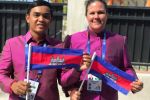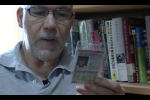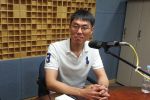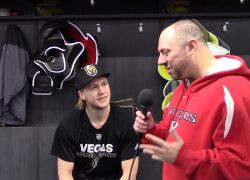A Left-Hander Must Choose Between Japan and the U.S.
Posted by Philip Riccobono at 24 August, at 00 : 00 AM Print
Fifty thousand people packed into Koshien Stadium to watch Yusei Kikuchi throw 94-mile-per-hour fastballs in Japan’s biggest sporting event — the summer high school baseball tournament. It may be their last chance.
By October, Kikuchi, 18, must choose between Japan and the United States for a career he has dreamed about since primary school. Signing at home would rule Kikuchi out of a move to the United States for as many as nine years. Choosing the American majors may open the door to a stream of amateurs spurning Japan for a chance to play alongside countrymen like Ichiro Suzuki and Daisuke Matsuzaka.
“Kikuchi would open things up completely,” Danny MacLeith, a scout for the Chicago Cubs, said last week in an interview behind home plate at Koshien, in Nishinomiya city, west of Osaka. “If he’s available and wants to go, he needs to say so because the Japanese draft is two months away. It’s time.”
American teams have signed more than three dozen of Japan’s best players since 1994, often at much higher salaries. The Boston Red Sox in 2006 signed Matsuzaka, who became a national hero pitching his team to the Koshien championship in 1998, to a six-year, $52 million deal that dwarfed with his one-year, 330 million yen ($3.5 million) contract with the Seibu Lions.
Others include outfielder Suzuki, who has won two batting titles with the Seattle Mariners since leaving the Orix Blue Wave in 2000 and is on a pace this year to become the first man to record at least 200 hits in nine straight seasons. He is making $18 million this season, the most among Japanese players.
To compensate Japanese teams, Nippon Professional Baseball in 1998 introduced a system mandating that players with fewer than nine years experience can go to the United States only if their team auctions their rights. The Red Sox paid Seibu $51 million merely to negotiate with Matsuzaka.
Kikuchi’s departure would be different. As a senior at Hanamaki Higashi High School in the northern prefecture of Iwate, he is not subject to those rules.
Major league teams have mostly avoided amateurs because the agreement between the two countries is vague and players have been unwilling to risk a move to the United States without professional experience in Japan, MacLeith said.
That changed last year when the Red Sox signed pitcher Junichi Tazawa to a three-year, $3 million contract. Tazawa had asked Japanese pro teams not to draft him out of the amateur corporate leagues, a step between high school and the Nippon leagues, because he favored going to the United States.
“After Tazawa, more Japanese players may feel they can make the jump,” John Cox, the San Francisco Giants’ director of scouting for the Pacific Rim, said last week in an interview at Koshien before watching Kikuchi pitch.
Tazawa, 23, is not the only Japanese amateur to leave directly for the United States. Mac Suzuki played for the Mariners and three other teams. Kazuhito Tadano left for the Cleveland Indians in 2003 after no team drafted him, and now plays for the Hokkaido Nippon Ham Fighters.
Tazawa’s departure was more controversial because Japanese teams were trying to sign him as well. The league responded by introducing rules barring players who skipped the draft from returning to a Japanese team for as long as three years.
“That rule really has no teeth, it isn’t going to deter people,” said Brandon Siefken, the author of a blog about Japanese baseball.
MacLeith is easy to spot at Koshien, a Californian wearing a yellow Cubs shirt and a wide-brimmed hat to stave off the 97-degree heat in the packed stadium. Millions more tune in to national broadcaster NHK to watch the two-week tournament.
This year, the attention is on Kikuchi, a 6-foot, 185-pound left-hander. His fastball would make him among the hardest throwers on a major league team. His aggressive approach on the mound — getting 32 strikeouts in 25 innings in a regional tournament — belies his manner when speaking to the news media.
“I’m glad that scouts from world-class baseball teams are actually watching me play,” Kikuchi said after a recent practice session. “I basically shrug off the pressure.”
Manager Hiroshi Sasaki said discussing Kikuchi’s future must wait until the tournament ends Monday.
Kikuchi lead his team into the quarterfinals, limiting Tohoku High School to one run on six hits and striking out nine in a complete game 4-1 victory.
For scouts watching his games, Kikuchi has given just enough signals to suggest he is considering a move to the major leagues. The Nikkan Sports newspaper quoted Kikuchi telling other students he wanted to go to the United States “as soon as possible.”
Cox, the Giants scout, says American teams are aware that persuading young players to play for them is a “sensitive issue in Japan,” adding that his team will approach a player only after he states publicly his intention to leave.
Whatever Kikuchi chooses, major league scouts will keep coming to Koshien. A future prospect may be Takuro Itoh, a freshman at Teikyo High School who was clocked at 91 m.p.h. pitching a third of an inning of relief in the first round of the tournament.
“He wasn’t on my list coming here, but he is now,” MacLeith said.
Related Posts
-

17 November at 11 : 40 AM 0
Chris Chapman: Las Vegas Sports Radio Personality
-

28 October at 12 : 37 PM 0
Women in baseball: Cambodia's national team coach rescues young human trafficking victims
-

31 May at 11 : 30 AM 4
Podcast 3.1: Paul Tanner #Japan #basballcards
-

26 November at 17 : 17 PM 0
Podcast 2.5: #Yonhap @Jeeho_1 lends a hand to @JoeyJung42






